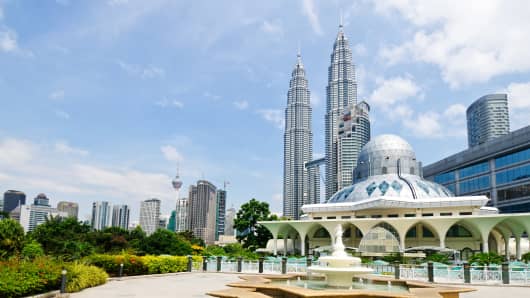The current market rout in emerging Asia isn't another late 1990's-style financial crisis, most analysts agree, but some have larger concerns that the region may have lost its ability to offer investors "catch-up" growth with the developed world.
"This is not 1997, but in many ways the current period is much more insidious and risky," Macquarie said in a report.
Many analysts have dismissed comparisons being made between the recent market turmoil in emerging markets and the Asian financial crisis of 1997-98. They argue that the crisis of the 1990's was triggered by the region's foreign-currency debt, which became too expensive when local currencies collapsed. In contrast, the foreign-currency debt levels in Asia are currently low, Capital Economics said in a note. Other analysts note Asia's financial sector is now better regulated while foreign-exchange reserves are much more substantial.
"(They have) very strong reserves, so they have cushions; better policies; and flexible exchange rates. They have much more self insurance than they did in the '90s. Not for all but for most they do," Pimco's co-CEO Mohamed El-Erian told CNBC on Friday.
(Read more: Emerging markets: dissecting the good from bad)
But even as crisis fears are being dismissed, analysts have flagged concerns about the inability of the region to "catch-up" with their Western peers.
According to Macquarie, most of the region's key growth engines over the last three decades, such as the deregulation of its production, finance and labor markets, have run their courses. The bank forecasts that most emerging markets will likely grow below trend going forward.





